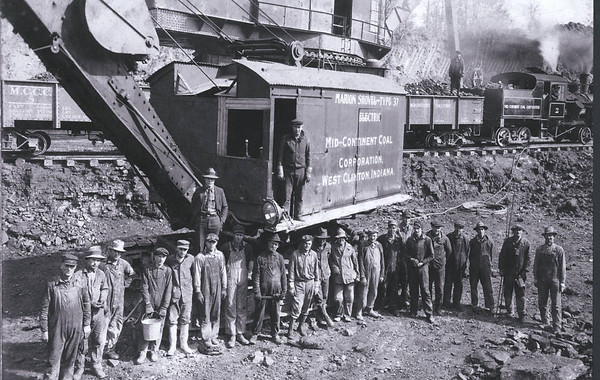The Full Story
About Clinton
Little Italy on the Wabash




Founded in 1829 and named after DeWitt Clinton, the Governor of New York at the time, Clinton, Indiana, witnessed its early growth fueled by immigrants attracted to the burgeoning coal mining industry. Notably, between 1856 and 1952, Vermillion County welcomed approximately 3,550 new foreign-born citizens, with Italians forming a significant contingent, accounting for nearly one-third of the total Declarations filed for naturalization.
Remarkably, most Italian immigrants hailed from Piedmont and Veneto, regions in northern Italy, diverging from the trend of southern Italian migration to the United States during that era. Despite the eventual decline of the coal mining industry, a considerable number of Italian settlers opted to remain in the area. Their presence led to the emergence of Little Italy in the northwest quadrant of Clinton, fostering a thriving community characterized by a multitude of businesses owned by Italian immigrants. Grocery stores, meat markets, bakeries, cheese shops, tailors, clothing, and shoe stores abounded, reflecting the entrepreneurial spirit and industry of these newcomers.
Strategically located in the southern part of Vermillion County along the Wabash River, Clinton holds a prime position at the convergence of State Road 63 and State Road 163, with U.S. Route 41 lying just east of the city. Fairview Park, a neighboring town, shares its northern border with Clinton.
An annual highlight is the renowned Little Italy Festival, inaugurated in 1966, drawing over 275,000 visitors during the Labor Day Weekend. This vibrant celebration pays homage to the Italian and coal mining heritage of the region, offering a rich tapestry of Italian cuisine, a grapevine-roofed wine garden, grape stomping, and carnival-style food. The festival delights attendees with free stage entertainment, a bustling flea market, and proudly showcases the largest Italian-themed parade in the Midwest. Additionally, it hosts the Indiana Bocce Ball championship, houses a rare coal mining museum, and boasts ownership of one of fewer than 400 authentic gondolas in the United States.
Clinton's historical tapestry also includes notable events, such as a speech by Franklin Delano Roosevelt, delivered during his Vice-Presidential candidacy for the Democratic Party in 1920, at the South Main Street Coliseum. In 1930, a young Jimmy Hoffa led a successful job action at a Kroger warehouse, demonstrating the strength of collective action.
Formerly, Columbus Day was observed as Italian Day in Clinton, echoing the recognition of Saint Patrick's Day as Irish Day in other locales. Activities during this celebration included parades, a queen contest, crock 'busting' competitions, and the greased pole challenge, culminating in its discontinuation in 1970.
Present-day Clinton boasts a diverse culinary scene with fine restaurants, bars, wineries, and breweries. The city showcases three distinct fountains imported from Italy, alongside the Immigrant statue, contributing to its unique character. Despite its small-city ambiance, Clinton offers extensive amenities, including numerous parks, public plazas, sports fields, gymnasiums, and boasts the state's premier 9-hole golf course.























